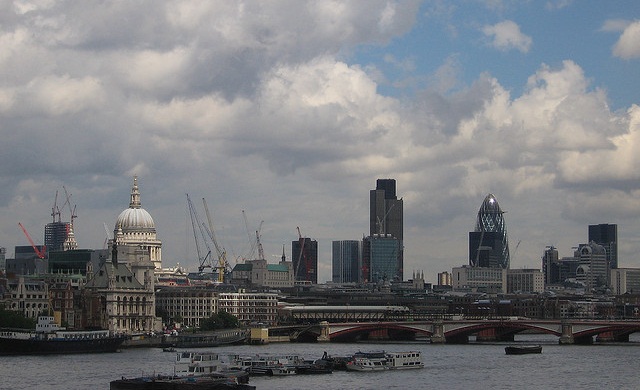The FTSE continues to trend higher in an overbought market. It is overbought on the RSI 14 and overbought on my own proprietary indicator, 13-day BTI. When the 13-day BTI is overbought the FTSE will pull back. However, on some occasions and in strong trending markets the FTSE can remain overbought for days. In this situation it is difficult to know what will trigger a change in sentiment and subsequent trend change. What I know from history is that a pullback will come, the question is when?

Positive news can delay the pullback and I think this is what is happening right now. Talk of central banks cutting rates or increasing stimulus is the kind of news that will boost sentiment, hence when sentiment is positive – markets rally. The markets are rallying on hope that the economy and earnings will soon improve. The more the market rallies, the more optimistic investors become, this wave of optimism itself boosts positive sentiment. It’s a self-perpetuating cycle where positive sentiment creates rallies and rallies boost sentiment. Of course in reality things are different. Read this article from Bloomberg:
Central Banks Keep Easing After 511 Cuts Fail to Spur Growth
Global central bankers are poised to ease monetary policy even further after a wave of interest-rate cuts from India to Poland.
As Group of Seven finance chiefs gather in the U.K. today with monetary policy on their agenda, economists at Morgan Stanley and Credit Suisse Group AG are among those predicting policy makers will keep deploying stimulus amid weak global growth, slowing inflation and the need to thwart currency gains…
If the economy is still failing to improve after 511 cuts and after the greatest inflow of stimulus in history – we should be worried. But the most worrying thing is slowing inflation, which is somewhat of a mystery as boosting the money supply with stimulus should naturally create inflation. However, that’s not the case as we are witnessing, which begs the question – are we really heading towards deflation? It certainly looks like deflation is more likely than inflation at this point in time and if the stimulus does not create inflation we are in a completely different environment than we are lead to believe and one that could lead to a spiraling deflationary downturn. In this kind of environment all asset classes will fall, consumption will collapse, global GDP will turn negative and the stock market will enter the greatest bear market since 1929. It may sound scary but it is a strong possibility and an outcome we must prepare for.
Today I read that the German Finance Minister Wolfgang Schauble said “the wave of stimulus provided by central banks around the world is causing critical problems, as it may prompt investors to make bad decisions”. And that echoes my point above; stimulus boosts positive sentiment, this in turn will push the stock market higher. When the reality finally dawns investors will realise that the central banks’ actions are not working – they will turn bearish and a stock market collapse will swiftly follow. So take this as a warning – to all the bulls who think the Dow is going to 36,000, we are by no means out of the woods just yet.
It’s a wonder why investors don’t see the danger ahead? That’s simply because they are addicted to the stimulus, it acts like a drug by creating a false sense of security with no logic, rhyme or reason. Under the influence of drugs, danger is never apparent and life is always safe and good. Drug addicts can never make rational decisions either. They buy stocks because they are told by other drug addicts that the stock market is a one way bet, that earnings reports are good and the economic data is improving. In a period of extreme optimism, this type of herding is the norm and whatever happens investors will always have an excuse to buy. But ‘buyer beware’ as the next time my sentiment indicator turns negative, I bet they will have an excuse to sell.
Thierry Laduguie is Market Strategist at www.bettertrader.co.uk


 Hot Features
Hot Features













